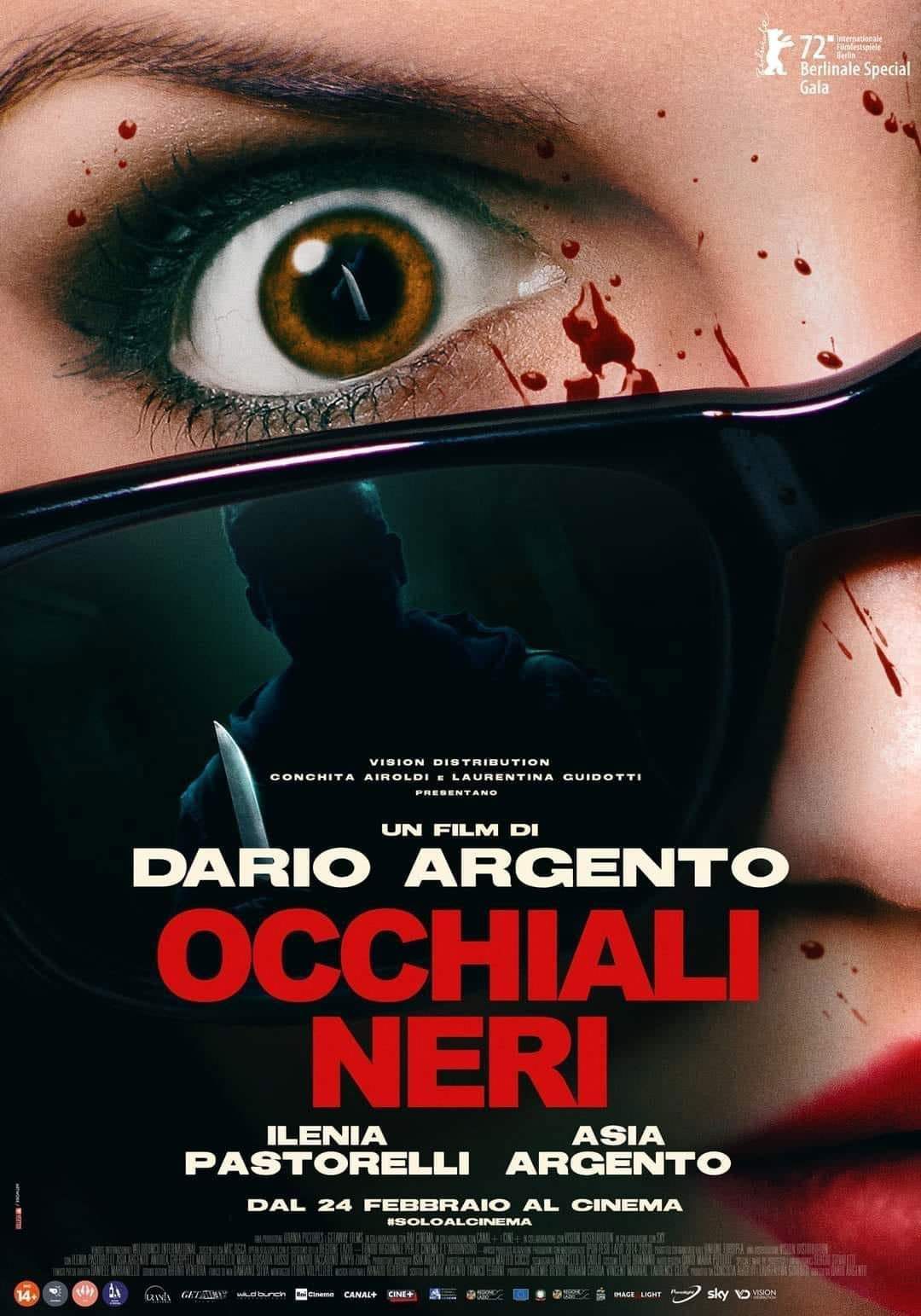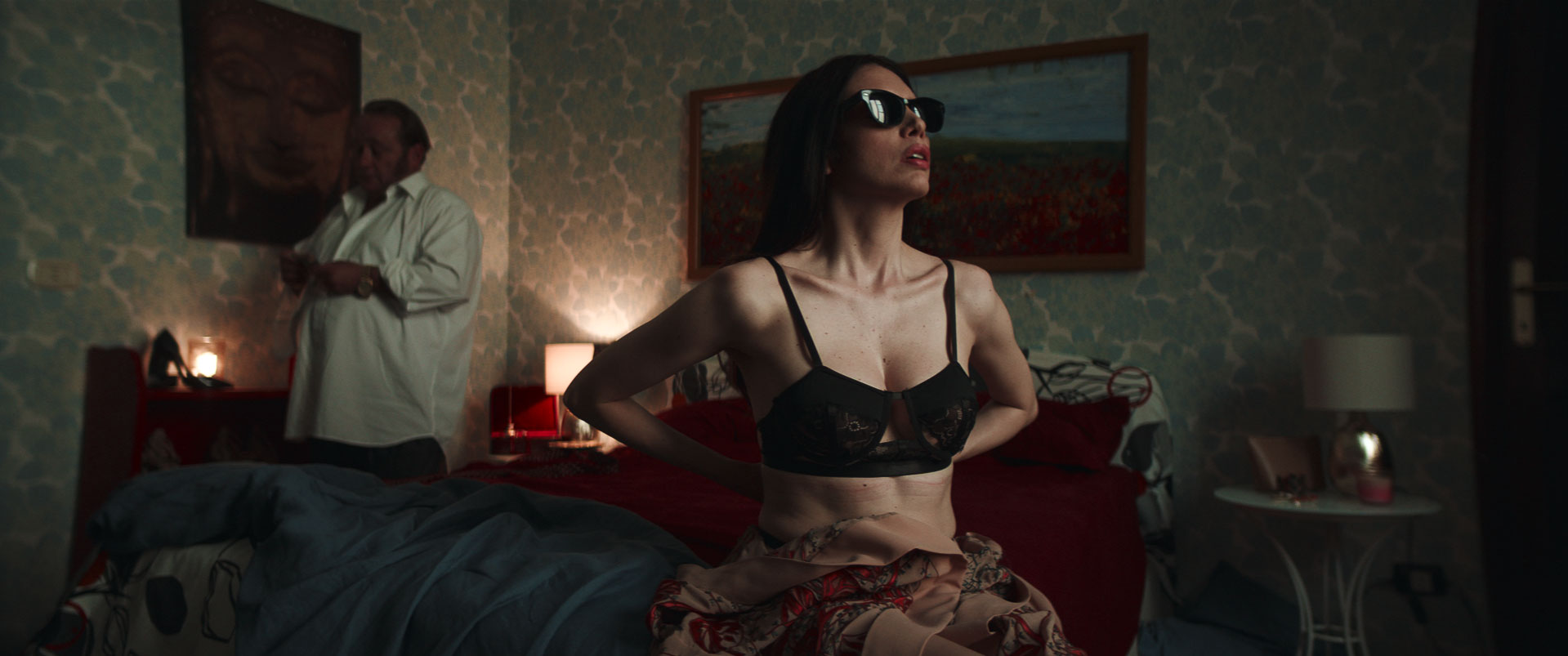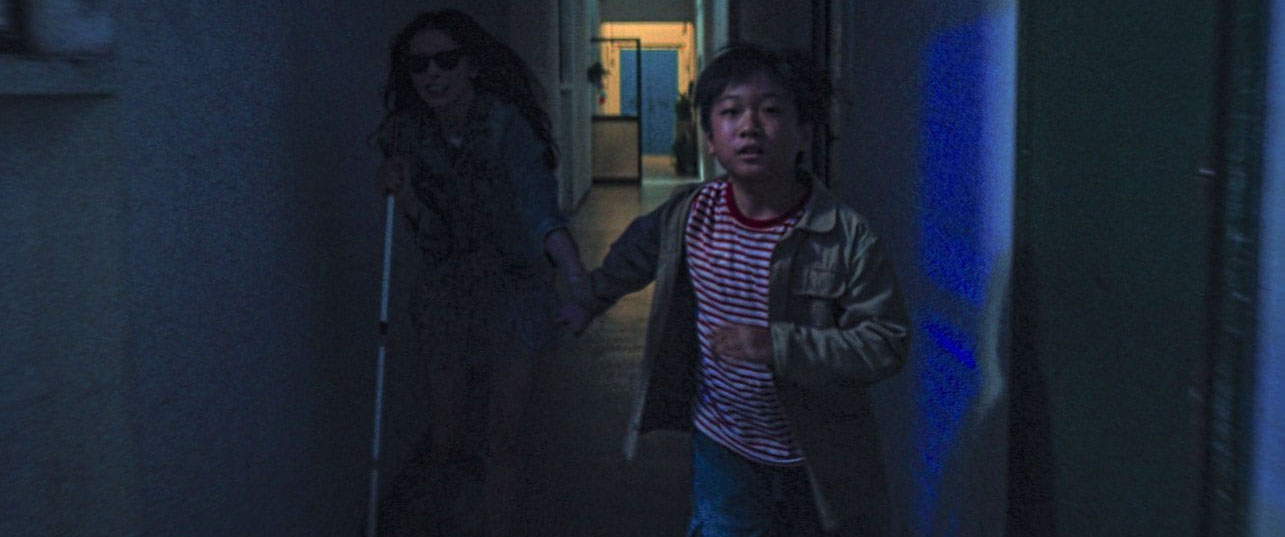
Director: Dario Argento
Writers: Dario Argento, Franco Ferrini
Cast: Ilenia Pastorelli, Asia Argento, Andrea Zhang
Producers: Conchiat Airoldi, Brahim Chioua, Noémie Devide, Laurentina Guidotti, Vincent Maraval
Music: Arnaud Rebotini
Cinematographer: Matteo Cocco
Editor: Flora Volpelière
Cert: 18 (TBC)
Running time: 86mins
Year: 2022

What’s the story: Present day Rome. While fleeing a madman who is garroting sex workers, Diana (Pastorelli) is blinded in a car crash. Chinese boy Chin (Zhang) is also in the crash and vows to help Diana evade the killer.

What’s the verdict: Ten years have passed since Dario Argento’s Dracula, aka Dracula 3D. The scars have just about healed. Although not the worst of Argento’s career (that still goes to 2009’s Giallo) the director’s stab at Bram Stoker misfired as badly as his go at Gaston Leroux with 1998’s Phantom of the Opera. His follow-up, the part Kickstarter funded, Iggy Pop starring The Sandman, quickly sank into Development Hell. The sun had seemingly set on Argento’s directorial career.
A decade later we have Dark Glasses. Happily, it was worth the wait. Not vintage, but a hugely enjoyable thriller, with a handful of set-pieces that remind who is behind the camera.
Yes, this is Argento retreading safer ground for his return-to-form movie. The blind adult and child helper targeted by a madman was the basis of his 1971 giallo The Cat o’ Nine Tails. A dog attack is a replay of a scene from Suspiria, but with better prosthetics and puppets. Dark Glasses’ solid, efficient feel is reminiscent of the 2001 thriller Sleepless, so it is no surprise to discover it was originally slated to be made in the early noughties.
But there is evidence here that Argento (and maybe co-writer Franco Ferrini) has mellowed in his late-autumn years, and a sweet sentimentality has soaked into the fabric of the film. Moreover, Dark Glasses’ closing moments may be the most melancholy of the director’s career. Composer Arnaud Rebotini (replacing an originally planned Daft Punk) captures this introspective mood in several touching, softly mournful cues.

In the lead, Ilenia Pastorelli delivers a sensitive performance as the blinded escort Diana, who finds herself still in the killer’s sights. This sensitivity extends to making room in the swift runtime to depict her recovery and adjustment to a new life. Here she is helped by Asia Argento in a warm role as Diana’s sighted therapist. A role it is easy to imagine mum Daria Nicolodi playing if this was an eighties Argento movie. Diana’s relationship with Andrea Zhang’s Chin is broad strokes. But the child actor holds his own in both the quieter scenes and the chase sequences dominating the final act.
Seeing and not-seeing, and understanding what you’ve seen, has always been at the heart of Argento’s work. Here, a weirdly unnerving and off-kilter opening sees Diana witnessing a solar eclipse, and staring into blinding darkness becomes a figurative motif of the film. Indeed, Dark Glasses (or the more evocative sounding Italian title Occhiali Neri) describes an Argento’s killer’s eyes as much as the tinted specs Diana becomes forced to wear.
Not everything works. Audience giggles are likely to be as unintended as intended. The revelation of who is slaughtering the sex workers is lacklustre to the point of being mistaken for a red herring. But, all this is offset by suspense set-pieces (including a nightmarish and OTT stumble into a nest of snakes) and impressive stunt work, particularly when the film goes rural in the second half. Plus, no-one can do a knife penetrating the body quite like Dario Argento.
Enough of the director’s old magic still swirls about to make this a welcome return for the legendary filmmaker. Right now, that’s good enough.
Rob Daniel
Twitter: rob_a_Daniel
Podcast: The Movie Robcast

Pingback: FrightFest 2022 Round-Up